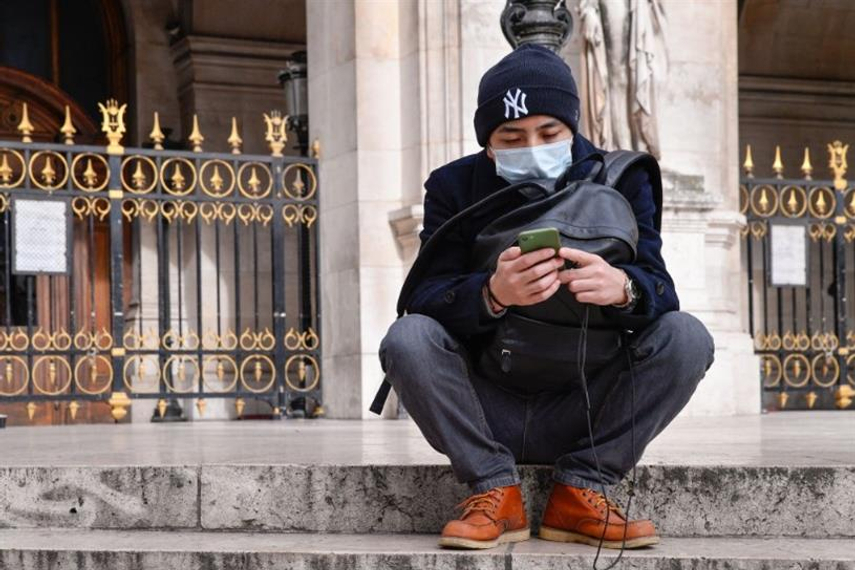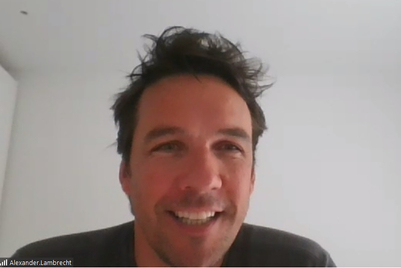
In the last 48 hours, Adobe canceled its annual summit in Las Vegas; Facebook and Vevo pulled out of SXSW; and the United Nations closed down its Unstereotype Alliance Global Member Summit.
And all this comes after a number of other large industry conferences decided to call off their plans due to the coronavirus continuing to spread around the world.
Meanwhile, Cannes Lions confirmed that while it is monitoring the situation closely, the festival is "firmly open for business."
The illness, which has infected more than 90,000 people globally, is also causing stocks to plummet, with businesses and tourist attractions shutting their doors, countries putting travel restrictions in place and major events being nixed.
Coronavirus fears have plunged the stock market into turmoil -- how worried shout adland be?
Chris Hirst, Global CEO, Havas Creative
The situation is changing so rapidly, virtually hour by hour at the moment, that it is incredibly hard to say how worried we should be. One thing is for sure, we will face disruption -- to our clients, brands and to our businesses. The advantage we have as an industry is that technology and the already flexible nature of our business, allows us to continue in the main to do our jobs remotely. Indeed, for an industry that loves to jump on a plane, it may be that we actually learn something about better flexible and distance collaboration.
While we know we will inevitably feel the knock-on effects through some of our clients, this may take some time to materialise and for the full effects to be felt. Our first priority, in whichever industry we’re in, must be to our people and customers - to protect them where possible, to keep the wheels in motion as much as we can, and to negate the impact of the outbreak on all our lives."
Lisa Colantuono, president at AAR Partners
Here’s the bottom line: The coronavirus is plunging the world economy into its worst downturn since the global financial crisis, according to the Organization for Economic Cooperation and Development. With that said, business and economics are certainly connected. It’s like that song, Dem Bones (the hip bone’s connected to the back bone, etc. etc.).
So, do I think all businesses – not just adland – need to be conscious of the epidemic and its potential impact? It would be naïve to stick your head in the sand. However, in almost two decades that I have been working in this industry as a search consultant at AAR Partners, I cannot remember the busiest start to Q1 ever. In fact, at least a dozen agencies had to pass on a recent review due to the fact that they were all "extremely busy with other new business opportunities."
On top of this, I must have spoken with at least 40 agencies in the past month and most seem to agree that 2020 has been an extremely busy year so far.
Greg Paull, principal at R3 Worldwide
Anytime a group of clients starts sneezing, agencies are going to catch a cold. The smartest agencies will be holding back on non-essential hires and hunkering down for a tough first half of the year.
Brian Wieser, global president of business intelligence at GroupM
It’s important to continue to emphasize all of the uncertainties about how widely and rapidly the virus will spread and how specifically people, groups of people and governments will and will not react. Now that the spread is slowing in China and gradual signs of a resumption of normalcy are resuming, we do have a sense of how this could play out elsewhere.
Unfortunately, much of the rest of the world is only now going through what China has gone through over the prior two months. This means that we likely have yet to see the worst play out.
While it is far too early to anticipate outcomes with any precision, the implied double-digit declines in ad spending within China for the first quarter could play out elsewhere, with reduced declines in subsequent quarters and an eventual reversion back to growth as we have seen following other recessions.
If the volume of available budgets for spending on advertising weakens in any given country, though, it is difficult to anticipate which specific media will be most impacted. It does seem safe to say that the aforementioned supply chain issues with China – and the timing with which Chinese manufacturing returns back to normal – will disproportionately impact global media owners whose ad revenues depend on Chinese manufacturers. Traditional television could fare relatively better because of the likely improvements in audience levels, while outdoor advertising may be worse off with lower levels of foot traffic in many places.
The question of whether or not the Olympics will happen is another issue top-of-mind for marketers. While they are still moving forward at this time, it will be particularly critical for marketers who build substantial campaigns centered around the Games to establish potential back-up plans in the event the Olympics do not occur.
It is important to note, though, that just because aggregated shifts are likely to occur, it does not mean that individual marketers should necessarily alter their media strategies.
Marc Boyan, CEO The Miroma Group, Miroma Ventures and R4E plc
Marketing-communications businesses should be keeping a very watchful eye on the spread of coronavirus and its potential to have a catastrophic impact on the global economy. As always, the strength and outlook of the economy underpins the financial health of the advertising industry.
With select export restrictions already in place, we have seen supply chain breakdown across sectors such as automotive, luxury goods and consumer electronics. Likewise, official travel restrictions combined with general public concerns over non-essential travel and gathering in large numbers have started to impact leisure and travel sectors negatively.
With the perfect storm of both supply and demand side repercussions on industry more generally, it would be understandable for brands geared towards the most exposed sectors to reduce their discretionary marketing spends until they have a clearer picture on outlook. In the event that the virus reaches pandemic proportions, you would of course expect marketing investment to be paired back.
Joanne Davis, president at Joanne Davis Consulting
With any pandemic, there are always worries. We are hearing about cancelled meetings, travel cut backs and work at home.
The optimistic says we will weather this storm. Adland needs to be sensitive but worrying won’t make it better. Action makes things better.
(This article first appeared on CampaignLive.com)


.jpg&h=334&w=500&q=100&v=20250320&c=1)
.jpg&h=334&w=500&q=100&v=20250320&c=1)


.jpg&h=334&w=500&q=100&v=20250320&c=1)

.jpg&h=334&w=500&q=100&v=20250320&c=1)


.jpg&h=334&w=500&q=100&v=20250320&c=1)




.jpg&h=268&w=401&q=100&v=20250320&c=1)
.jpg&h=268&w=401&q=100&v=20250320&c=1)

.jpg&h=268&w=401&q=100&v=20250320&c=1)
